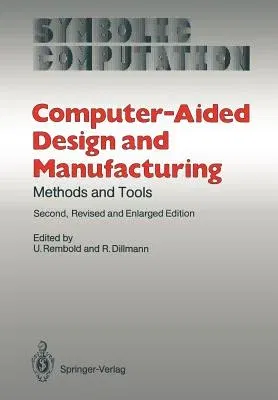Computer-Aided Design and Manufacturing: Methods and Tools (1986. Softcover Reprint of the Original 2nd 1986)Paperback - 1986. Softcover Reprint of the Original 2nd 1986, 8 December 2011

Qty
1
Turbo
Ships in 2 - 3 days
In Stock
Free Delivery
Cash on Delivery
15 Days
Free Returns
Secure Checkout
Part of Series
Symbolic Computation / Computer Graphics - Systems and Appli
Part of Series
Symbolic Computation
Part of Series
Computer Graphics - Systems and Applications
Print Length
458 pages
Language
English
Publisher
Springer
Date Published
8 Dec 2011
ISBN-10
3642827500
ISBN-13
9783642827501
Description
Product Details
Book Edition:
1986. Softcover Reprint of the Original 2nd 1986
Book Format:
Paperback
Country of Origin:
NL
Date Published:
8 December 2011
Dimensions:
24.41 x
16.99 x
2.44 cm
ISBN-10:
3642827500
ISBN-13:
9783642827501
Language:
English
Location:
Berlin, Heidelberg
Pages:
458
Publisher:
Series:
Weight:
752.96 gm

